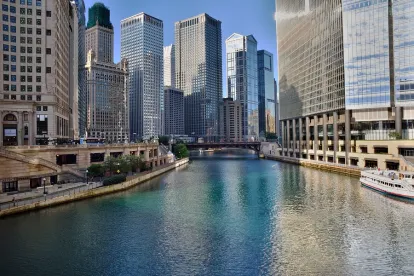On July 1, 2020, a number of substantive changes (including expanded coverage) to Chicago’s Paid Sick Leave Ordinance (PSLO) will become effective. These changes stem from recent amendments to the PSLO and the rules adopted by Chicago’s Department of Business Affairs and Consumer Protection (BACP).
Expanded Coverage
The scope of employers and employees covered by the PSLO will be expanded.
Employer
An “Employer” will be defined as a person who gainfully employs at least one Employee. The definition no longer includes the requirement that the employer maintain a business facility within the geographic boundaries of the City of Chicago or is subject to one or more licensing requirements in Title 4 of the Municipal Code.
With this change, a number of employers previously not covered by the PSLO will soon need to comply with its requirements.
Covered Employee
The definition of a “Covered Employee” still includes the requirement that the employee, in any particular two-week period, perform at least two hours of work for an Employer while physically present within the geographic boundaries of the City. This includes compensable time spent traveling in the City, such as for deliveries, sales calls, and travel related to other business activity.
A Covered Employee also will include:
-
An outside salesman;
-
A member of a religious corporation or organization;
-
A student attending and employed by an accredited Illinois college or university;
-
A motor carrier regulated by the U.S. Secretary of Transportation or the State of Illinois; and
-
All domestic workers, including those employed by Employers with fewer than four Employees.
Thus, employees previously ineligible to earn paid sick leave soon may be eligible.
Notice Requirements
The BACP rules contain detailed notice requirements for employers, including:
-
Posting a notice prepared by BACP through the employer’s usual method of communication for such notices, which can be either by paper posting (printed to scale on 11x17 paper) or by email or other internal communication channels;
-
Providing notice with the first paycheck advising Covered Employees of their rights. This individual notice is already a requirement under the PSLO, but the rules clarify the notice must be printed on 8.5x11 paper, or, if using direct deposit, employers may provide the notice through email or other internal communication channels;
-
Providing notice with the paycheck annually with the first paycheck on or following July 1, which is a new requirement; and
-
Posting all notices in English and any languages spoken by the employees at the facility who are not proficient in English and in which BACP has provided non-English language notices (currently, only in Spanish).
Recordkeeping Requirements
Employers must maintain certain records for no less than five years.
Employers also will be required to identify whether an employee is tipped, non-tipped, or performs duties of both. There are additional recordkeeping requirements for tipped employees.
Complaint Procedures, City Investigation
The BACP rules will allow a Covered Employee to file a complaint with the Department if the employee has been denied requirements under the PSLO. Previously, employees were limited to filing complaints if they were not granted paid sick leave pursuant to the ordinance.
In addition, a complaint will be accepted by:
-
Calling 311;
-
Using the CHI 311 mobile application;
-
Downloading and mailing a complaint form to the Office of Labor Standards; or
-
Downloading and emailing the complaint to the Office of Labor Standards.
The Commissioner of BACP can issue an order, in the form of a subpoena, directing an Employer to provide employment records, as well as any information necessary to show compliance with the PSLO. The Employer will have 30 days from the date the order is issued to provide the information or file a legal objection with the Commissioner. If the Employer files a legal objection, there will be a hearing within 10 business days. The Commissioner’s determination will be final, but may be appealed.
Next
Employers should confirm whether they are covered by the PSLO. Covered Employers should review their policies and practices to ensure compliance with all requirements.




 />i
/>i

